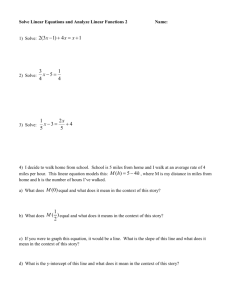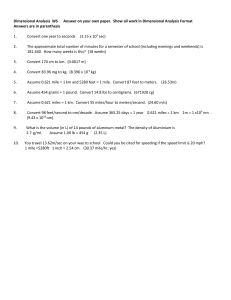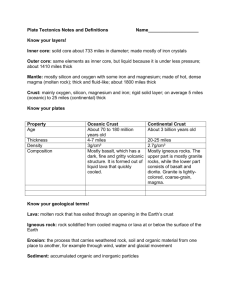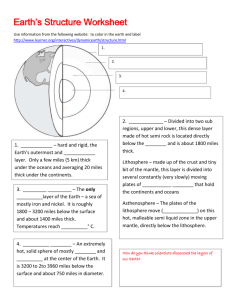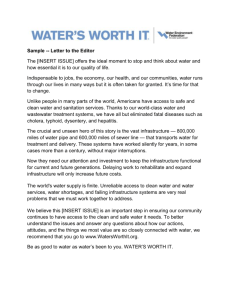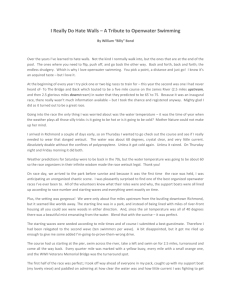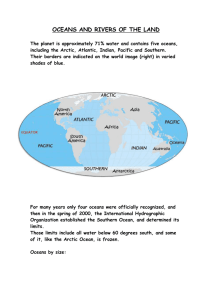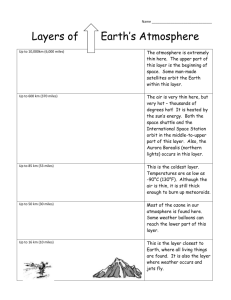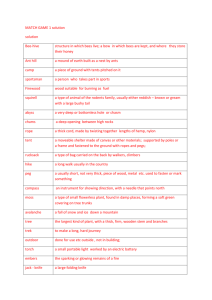File
advertisement
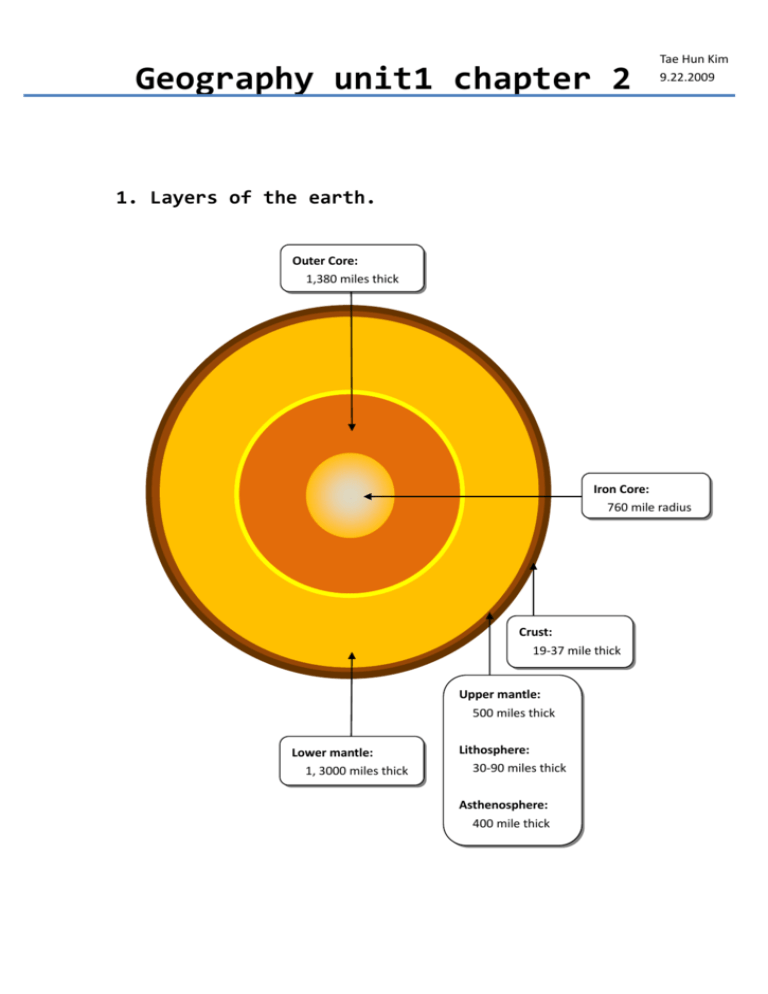
Geography unit1 chapter 2 Tae Hun Kim 9.22.2009 1. Layers of the earth. Outer Core: 1,380 miles thick Iron Core: 760 mile radius Crust: 19-37 mile thick Upper mantle: 500 miles thick Lower mantle: 1, 3000 miles thick Lithosphere: 30-90 miles thick Asthenosphere: 400 mile thick 2. Hydrologic cycle Evaporation from the oceans and other bodies of water sends 102,000 cubic miles of water into the atmosphere. Water from rain and snow flows into rivers, oceans and sometimes, underground water tables. A total of approximately 119,000 cubic miles of water evaporates into the atmosphere every year and returns as precipitation-rain or snow. 3. Chart of the landforms Land forms Picture Description Plains An area of land with relatively high relief, as well as flat Hills A landform that expends above the surrounding terrain, in limited area. Mountains Natural elevation of the earth’s surface with steep sides and greater height than a hill Rivers Natural water course, usually fresh water flowing towards an ocean, a lake, a sea or another river Delta A triangular area of land formed from deposits at the mouth of a river Volcano An opening In the earth, usually raised, through which gases and lava escape from the earth’s interior Glacier A large ice mass that moves slowly down a mountain of over land Swamp A lowland region that is saturated by water Jungle Dense forest in a hot Climate such as a tropical rainforest valley Low land between hills or mountains
